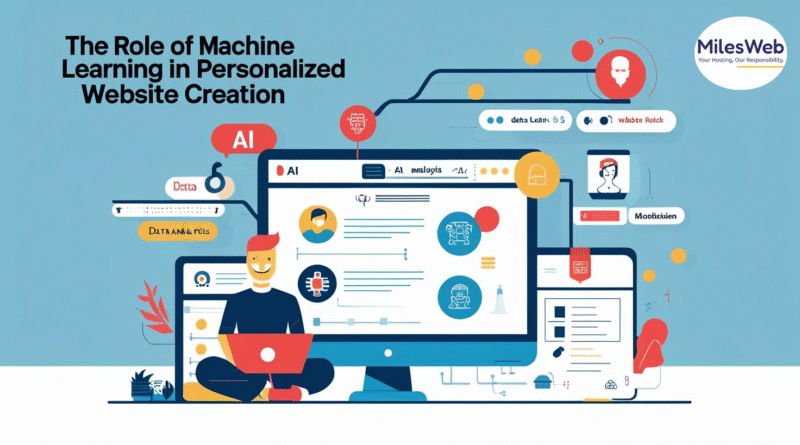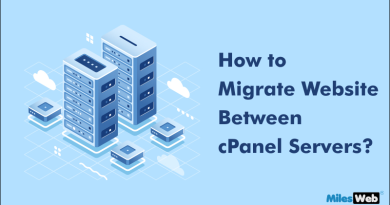The Role of Machine Learning in Personalized Website Creation
There’s a world of difference between a website that looks decent and one that feels like it actually “understands” the visitor. That’s where an AI professional website builder leaves its mark. Instead of offering a standard layout with generic content, it learns from visitor behavior—clicks, scrolls, time spent—and reshapes the website to match that user’s interests. It’s not just smart; it’s adaptive. This shift is turning passive websites into dynamic, personalized experiences that respond to people in real time.
Behind every great AI-powered website is reliable hosting—and let’s be honest, hosting costs add up fast. That’s why creators and business owners often search for a web hosting coupon code to keep things efficient without sacrificing performance. After all, personalization technology might do the heavy lifting, but your server still needs to be fast, secure, and reliable if you want that smooth experience to reach every visitor.
What Exactly Is the Machine Learning Advantage?
Machine learning doesn’t just automate—it observes, interprets, and evolves. When applied to website creation, it means your website gets better over time without manual tweaking. Suppose a user tends to click on specific product categories, scroll past others, and spends more time on reviews—Machine Learning picks up on all of that. It then subtly tweaks the homepage, reorders the product grid, and recommends more relevant options the next time that same user visits. That’s not possible with static design logic alone.
It’s not about replacing human design—it’s about scaling personalization without needing a full-time dev team.
Real-Time Content Personalization
Forget the old-school “one-size-fits-all” homepage. With Machine Learning integrated into your website, the content someone sees at 9 AM may not be the same as what they see at 5 PM. Maybe they returned using a different device. Maybe their preferences shifted. A machine learning algorithm notices these subtle changes and adjusts content blocks, layout elements, and even tone of messaging accordingly.
For instance, returning users might see content that reflects their past browsing behavior. First-timers, on the other hand, get guided tours, featured blog posts, or helpful pop-ups that introduce them to what the website offers.
Smarter Recommendations That Actually Work
We’ve all experienced infuriating recommendation engines that just throw random items at us. The smart ones—the ones built with machine learning—don’t predict. They learn.
They refer to past behavior, filter patterns across similar clients, and adapt their recommendations with each click. It is particularly effective in e-commerce, membership websites, online education platforms, or even blogs with extensive archives. Rather than feeding users too many options, your website gently guides them to what they’re likely to be searching for.
This doesn’t only enhance user experience—it silently increases engagement, boosts time on website, and pushes more conversions.
Adaptive UI: When Design Reacts to Behavior
Here’s where things get very fascinating: the actual website interface can adjust based on how people act. If most visitors bounce off a long form halfway, the machine begins to prefer a streamlined variant. If a specific call-to-action button receives more clicks when placed above the fold, the algorithm moves it.
As time goes on, your website is a living entity—tuning the appearance and behavior of it for different audiences without requiring a redesign every few months.
Low-Code Tools Are Making This Accessible
You don’t need to write Python scripts or build neural networks manually. Plenty of AI-powered builders come pre-integrated with machine learning features. Platforms like Wix ADI, Zyro, and other websites are providing easy methods to integrate ML logic into how your website functions.
And if you’re hands-on, you can find APIs and ML models that can integrate with your CMS or website infrastructure. Consider TensorFlow.js or Google’s ML Kit. These tools are not exclusive to devs anymore—now they’re for designers, marketers, and creators who’d like smarter websites without complex coding.
A Few Challenges to Stay Aware Of
Personalized experiences have their own risks. The more you gather data, the more careful you must be about how you process it. Ensure consent is asked for and handled clearly, and always adhere to privacy laws such as GDPR or CCPA.
Additionally, algorithms can be biased. If your training data reflects odd behavior, your website might unintentionally favor content that does not work for all users. Periodic analysis of how your personalization system is performing can help fix this.
Where It’s Headed Next
Personalization using machine learning is just getting started. What exists today—recommendation engines, dynamic interfaces, and user-specific content—is just the starting point. What’s coming next is even more predictive.
Think of a website that not only alters its structure for you but also knows ahead of time what you’ll want before you even ask. Voice-enabled navigation, emotion-aware tone analysis using camera or mouse tracking, and time-of-day prediction-driven actions are all being experimented with.
In e-commerce, this might translate as mood-based or weather-based. For service businesses, it could mean offering exactly the kind of package a visitor is most likely to want, without them ever having to dig through menus. It’s not fantasy—it’s where personalization is heading, and machine learning is the core engine behind it.
Even in smaller websites, micro-personalization—like greeting users by name, adjusting images based on region, or simplifying design based on browsing speed—is becoming standard. If your website’s not learning and evolving, it’s falling behind. And visitors will notice.
Closing Insights
Machine learning is no longer just a back-end feature—it’s front and center in the design and functionality of contemporary websites. From recommendations to design that adapts, it’s redefining how businesses engage with visitors.
You don’t need to be a developer to build a smarter website. Whether you’re using an AI professional website builder or adding personalization features yourself—with a web hosting coupon code to keep costs in check—it’s all manageable. MilesWeb makes it easier to run a personalized website without dealing with complicated setups. Their hosting plans give you room to experiment, tweak, and grow—without needing to be a tech pro.
And if your website still looks the same to every visitor? That’s a red flag. People now expect websites to respond, adjust, and actually feel relevant. Machine learning helps you do that—not as a luxury, but as the new standard




